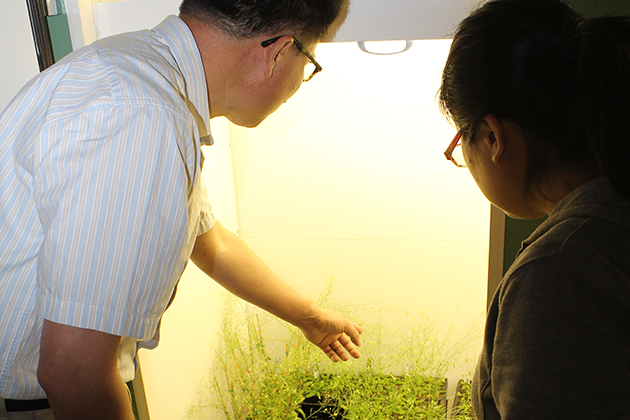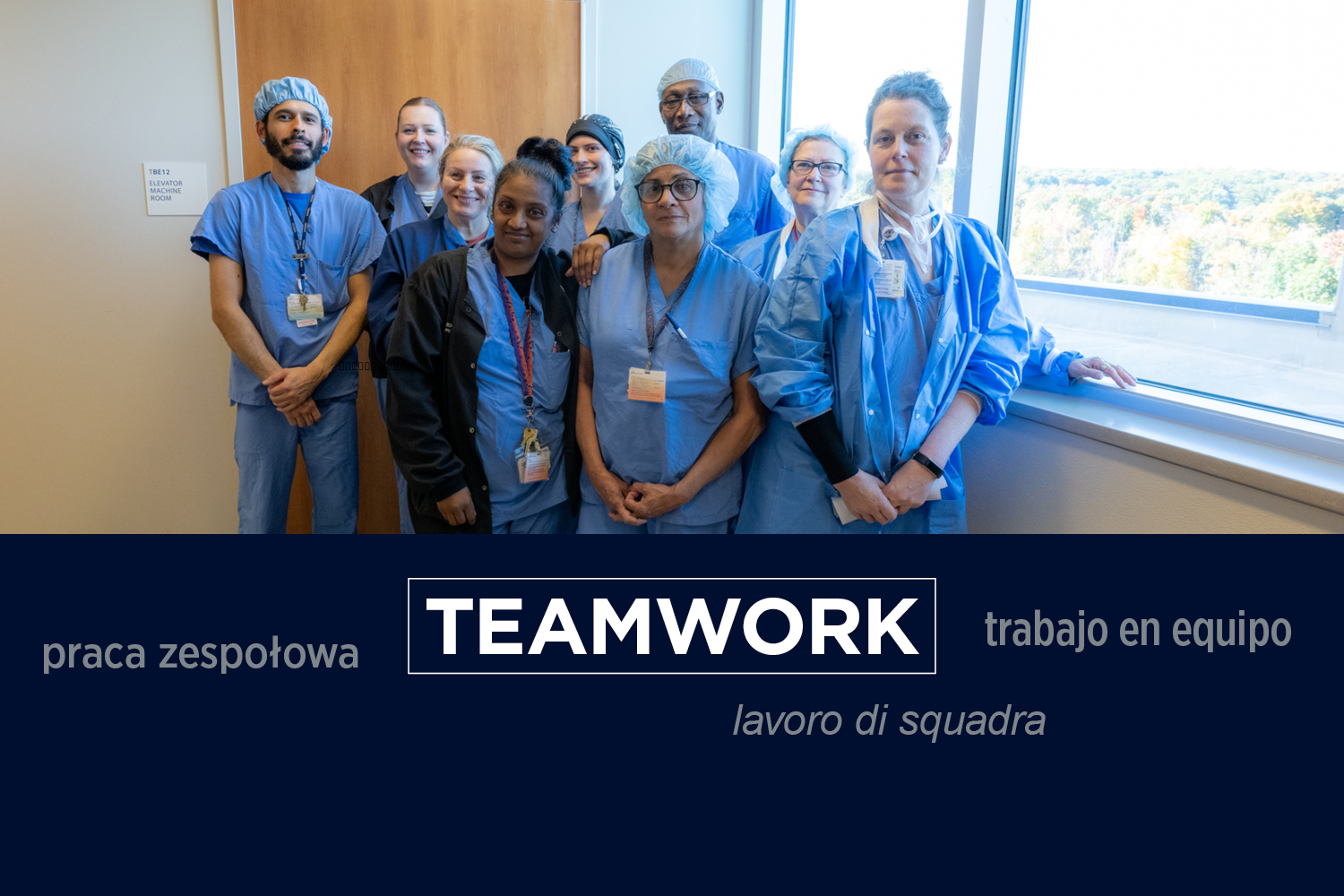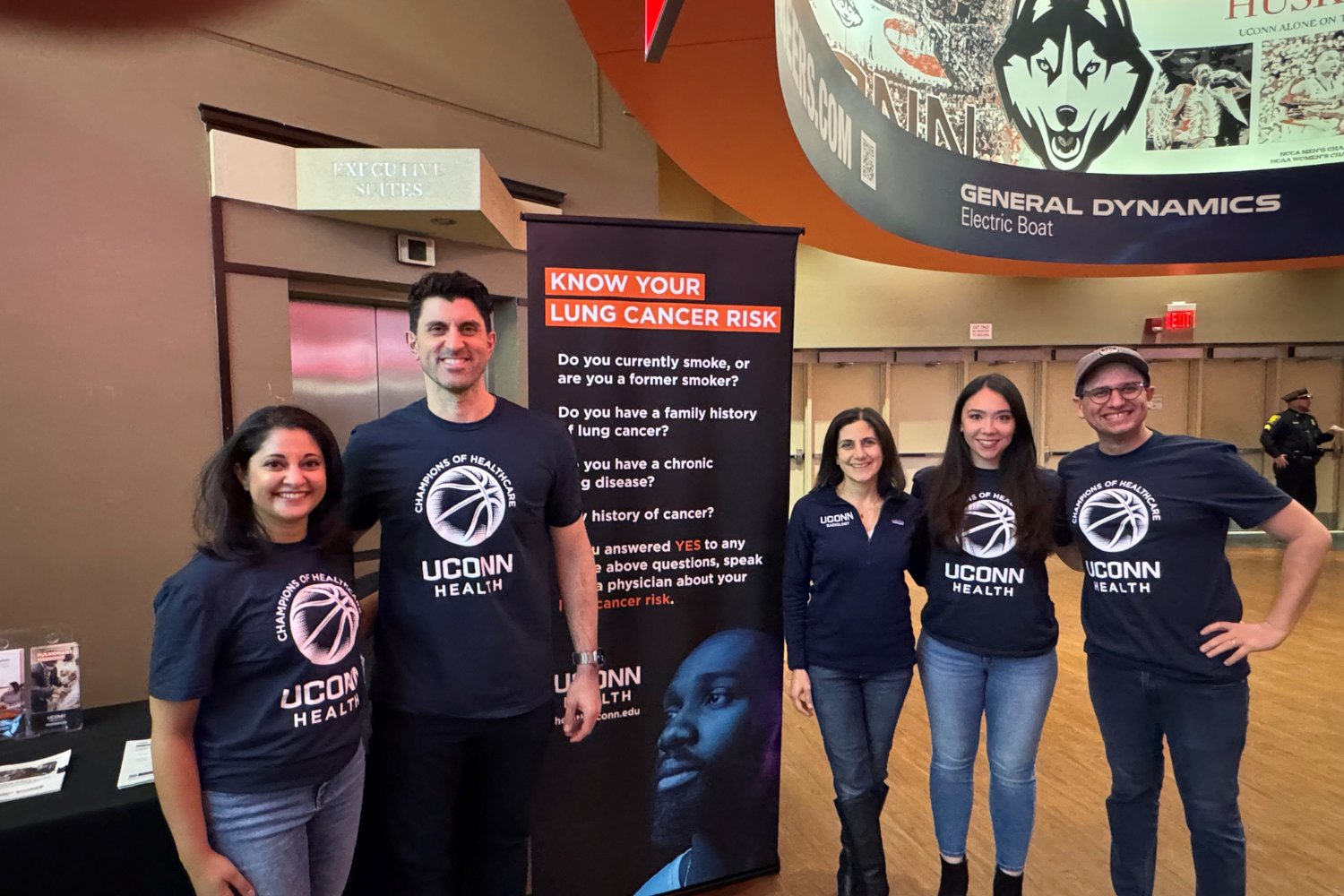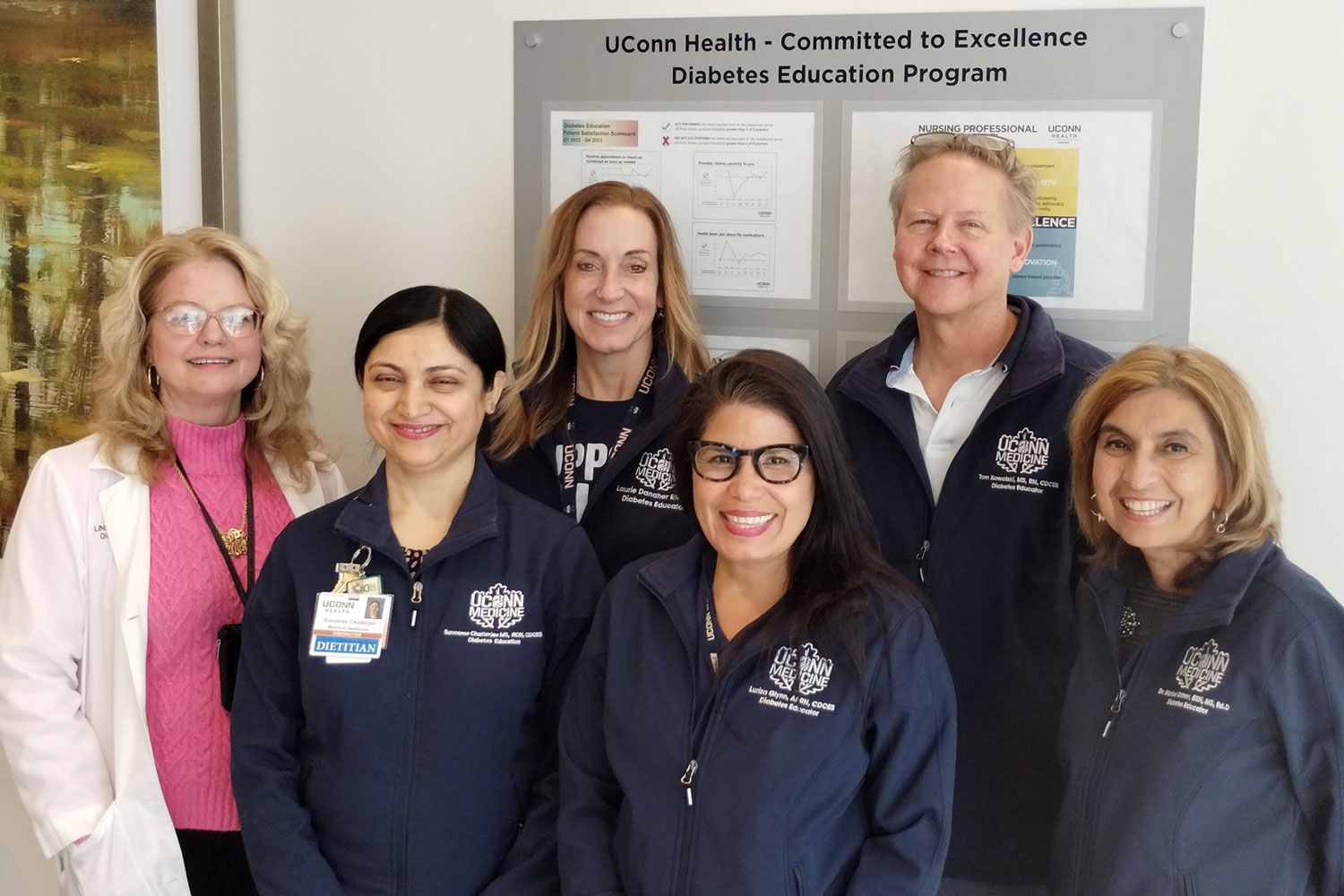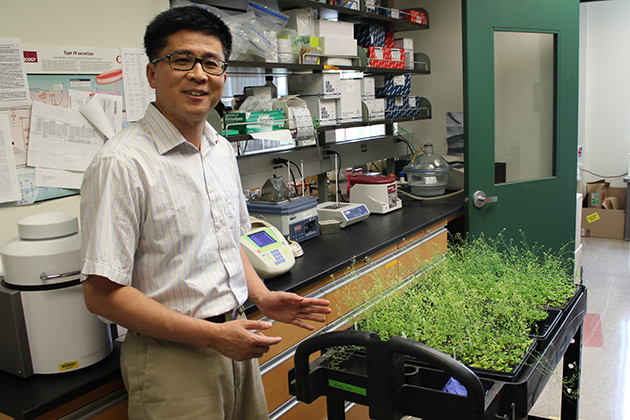
A UConn researcher has identified a mutant plant that offers insight into how plants produce cell walls, which may ultimately reap applications for agricultural productivity and biofuel production.
Huanzhong Wang, assistant professor in the Department of Plant Science and Landscape Architecture, was recently awarded an NSF CAREER award, a grant that provides major support to promising young faculty in the sciences, to pursue his research on a newly identified protein in plants that plays a crucial role in stem cell proliferation and biomass accumulation.
Developing mutant plants is a common procedure for genetic researchers who want to learn about the activity of genes that are sequenced but whose functions are still unknown.
To understand the functions of these genes, researchers activate or knock out different genes and then observe the phenotypic traits of the resulting mutants, looking for any interesting characteristics.
In developing and analyzing more than 12,000 mutant specimens, Wang’s group identified one that showed developmental defects in the way stem cells differentiated into the two types of tissue that transport water and nutrients inside plants.
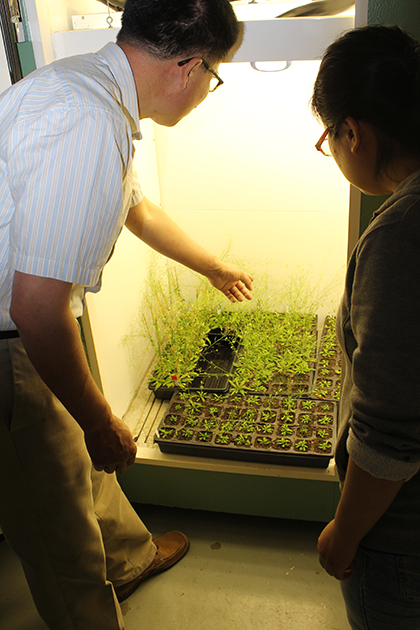
Wang’s research speaks to the fundamental biological functions of plants. Around 450 million years ago when plants first started to move out of the ocean onto land, they had to find a way to retain water, to reach light from above, to transfer mineral nutrients upwards against gravity and, for fear of falling over, to retain structural integrity in their cell wall.
By manipulating these functions, Wang hopes to learn more about growing bigger, stronger crops. And that information is critical to facilitating the production of more biomass, which, when converted into biofuel, is an important product for the renewable energy sector.
Wang’s CAREER award will total more than $784,000 over five years. Throughout that time, Wang said he plans to engage graduate students, undergraduate students, and high school students – particularly underrepresented minority students – as research assistants on his project.
He is currently collaborating with teachers at Windham High School to integrate a stem cell lab module into an Early College Experience course on biotechnology, and plans to recruit interested high school students into his lab, where they will help run experiments and learn advanced biological and genetic techniques.
At UConn, Wang says, “we have a mission to promote science to the community.”
This article is based on a post that was first published in the College of Agriculture, Health, and Natural Resources’ newsletter, Naturally@UConn.
